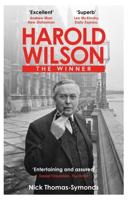Publisher's Synopsis
*Includes pictures.
*Includes bibliographies.
Abraham Lincoln (1809-1865) is one of the most famous Americans in history and one of the country's most revered presidents. Schoolchildren can recite the life story of Lincoln, the "Westerner" who educated himself and became a self made man, rising from lawyer to leader of the new Republican Party before becoming the 16th President of the United States. Lincoln successfully navigated the Union through the Civil War but didn't live to witness his crowning achievement, becoming the first president assassinated when he was shot at Ford's Theater by John Wilkes Booth on April 14, 1865.
When McKinley was assassinated in 1901, young Teddy Roosevelt was thrust into the presidency. Roosevelt's "Square Deal" domestic policies favored average citizens while busting trusts and monopolies. Teddy also promoted conservation as an environmental stance, while his "speak softly and carry a big stick" foreign policy is still an oft used phrase today. Teddy even earned a Nobel Prize during his presidency.
Teddy is on Mount Rushmore and might be America's greatest 20th century president, but if he's not it might be because of his own relative. Whether Franklin Delano Roosevelt was America's greatest 20th century president or not, there's no question that he was the most unique. A well-connected relative of Theodore Roosevelt, FDR was groomed for greatness until he was struck down by what was widely believed to be polio at the time. Nevertheless, he persevered, rising through New York politics to reach the White House just as the country faced its greatest challenge since the Civil War, beginning his presidency with one of the most iconic lines ever spoken during an inaugural address. For over a decade, President Roosevelt threw everything he had at the Great Depression, and then threw everything the country had at the Axis powers during World War II. Ultimately, he succumbed to illness in the middle of his fourth term, just before the Allies won the war.








